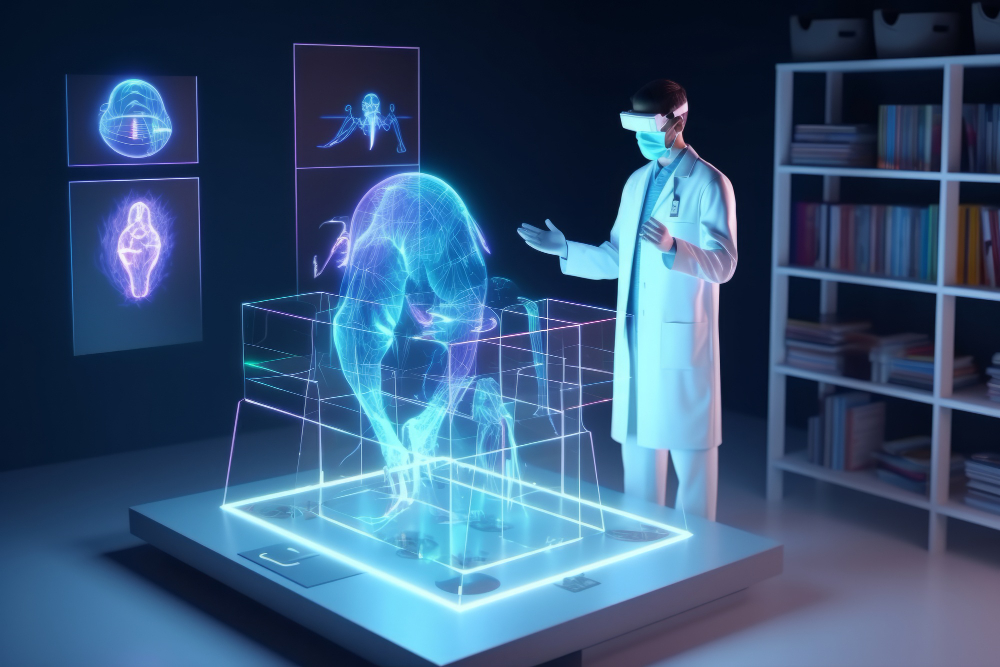The integration of AI in healthcare is not just a technological leap but a pivotal moment in medical history. By leveraging artificial intelligence, healthcare professionals can deliver more accurate diagnoses, personalized treatments, and proactive care.
Applications of AI in Healthcare
- AI in Healthcare Diagnostics
The role of AI in healthcare diagnostics is game-changing, allowing medical professionals to detect diseases early with unparalleled accuracy.- Example: AI tools in radiology detect anomalies that might be missed by the human eye.
- Personalized Treatment Plans with AI in Healthcare
The adoption of AI in healthcare enables personalized medicine by analyzing patient data, including genetics and lifestyle, for tailored treatment. - AI in Robotic Surgeries for Healthcare Innovation
Robotic surgeries powered by AI in healthcare ensure precision, reducing risks and improving recovery times. - Predictive Analytics Powered by AI in Healthcare
Predictive analytics, one of the most impactful applications of AI in healthcare, helps forecast disease outbreaks and manage resources effectively. - Virtual Assistants: Enhancing AI in Healthcare
Virtual assistants are transforming the patient experience, offering 24/7 support as part of the growing applications of AI in healthcare.
Read More: Journey to the Moon: The Story of Chandrayaan 3 Launch
Benefits of AI in Healthcare
- Accuracy Boost: AI in healthcare minimizes human errors in diagnoses and treatments.
- Cost-Effectiveness: Automating tasks with AI in healthcare reduces operational costs.
- Faster Processing: Processes like drug discovery are accelerated by AI in healthcare tools.
Challenges Facing AI in Healthcare
- Data Privacy Issues
Protecting patient data is crucial as AI in healthcare requires access to sensitive information. - Ethical Concerns
The decision-making capability of AI in healthcare must align with human values. - Implementation Barriers
The widespread adoption of AI in healthcare faces obstacles like high costs and technical expertise.
The Future of AI in Healthcare
The future of medicine lies in the continued growth of AI in healthcare. From telemedicine to wearable technologies, the possibilities are endless.
Conclusion
AI in healthcare is reshaping the industry with innovative solutions that improve efficiency and patient care. As technology advances, the integration of AI in healthcare will define the next era of medical excellence.

